What You’ll Learn
Upon successful completion of this course, you'll be able to:
- Discuss and Assess Software Development: Discuss current models, principles, and practices for software development and assess when each is more appropriate, with emphasis on Agile approaches.
- Use Professional Tools and Practices: Work confidently with software development tools and practices that skilled developers use to be more productive and deliver high-quality results.
- Contribute to Software Project Teams: Participate productively in real-world software development teams, applying collaborative skills and making well-appreciated contributions.
- Communicate with Project Stakeholders: Engage appropriately with project stakeholders, adapting your communication style for people with different roles and interests, promoting understanding and fostering collaboration.
- Learn from Experience: Reflect on your individual experience, contributions, and participation in team retrospectives to identify what worked well, what needs improvement, and how to adapt your approach to be even more successful in the future.
Content Areas
This course covers areas essential for professional software development:
- Software Development Models & Methods (emphasis on Agile approaches)
- Collaboration & Effective Communication
- Project Management (vision, needs, tasks; repositories; prioritization; work visualization)
- Software Engineering Practices (quality; architecture; professional standards)
- Intellectual Property (legal aspects; Free/Libre and Open Source Software)
Successful completion of the course requires demonstration of competence in all of these areas.
How You'll Demonstrate Your Learning
You'll have opportunities to show your understanding through multiple assessment formats, each designed to develop different professional skills:
- Written reports and reflections help you organize and present your analysis in structured formats. Reflections, in particular, demonstrate your learning from various course activities and experiences.
- Presentations develop your ability to communicate technical insights both visually and verbally, preparing you for stakeholder presentations in professional settings.
- Discussions and verbal assessments provide opportunities to explain your understanding conversationally, building confidence in technical communication.
This variety of assessment types mirrors the diverse communication skills you'll need in your professional career.
Materials
Materials from Prior Courses
References and resources from prerequisite coursework and electives, such as assignments, notes, books, articles, and projects, represent knowledge and skills you bring into this course and apply to new activities and projects.
Course-Specific Materials
This course uses no-cost informational sources and tools, primarily accessible online with some materials distributed in class. Here are links to initial materials with additional materials accessible throughout the semester.
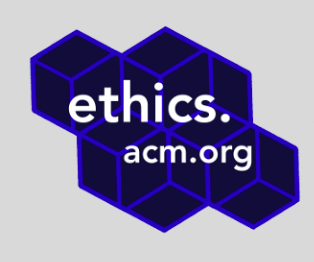 ACM Code of Ethics and Professional Conduct
ACM Code of Ethics and Professional Conduct
by ACM
acm.org (2021)
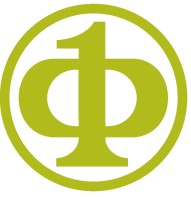 Software Engineering Code of Ethics and Professional Practice
Software Engineering Code of Ethics and Professional Practice
by IEEE-CS/ACM
ieee.org (1999)
![]() Git Tutorial
Git Tutorial
git-scm.com
 GitHub Help Documentation
GitHub Help Documentation
github.com
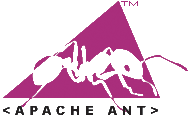 Apache Ant Manual
Apache Ant Manual
ant.apache.org
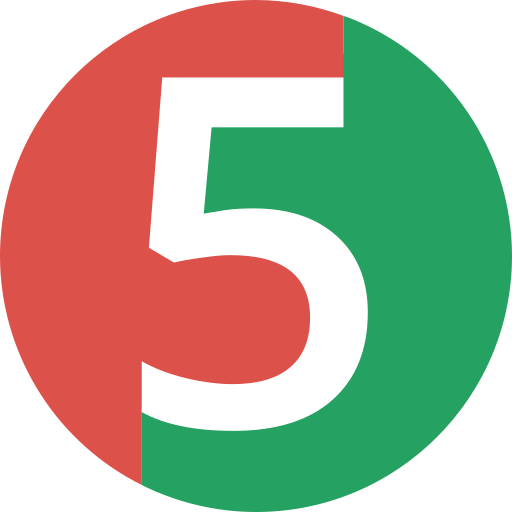 JUnit 5 User Guide
JUnit 5 User Guide
by Stefan Bechtold, et al.
junit.org
 97 Things Every Programmer Should Know: Collective Wisdom from the Experts
97 Things Every Programmer Should Know: Collective Wisdom from the Experts
edited by K. Henney
O'Reilly (2010); ISBN 0596809484
[online archive] [GitBook] [Publisher]
97 Things Every Software Architect Should Know: Collective Wisdom from the Experts
edited by R. Monson-Haefel
O'Reilly (2009); ISBN 0596555467
[GitBook] [PDF] [Publisher]
 Small, Sharp Software Tools: Harness the Combinatoric Power of Command-Line Tools and Utilities
Small, Sharp Software Tools: Harness the Combinatoric Power of Command-Line Tools and Utilities
by Brian P. Hogan
Pragmatic Bookshelf (2019); ISBN 978-1680502961 [Auraria Library] [Publisher]
 The Five Dysfunctions of a Team
The Five Dysfunctions of a Team
by Patrick M. Lencioni
Jossey-Bass (2002); ISBN 0787960756 [Auraria Library] [Publisher]
Optional & Recommended
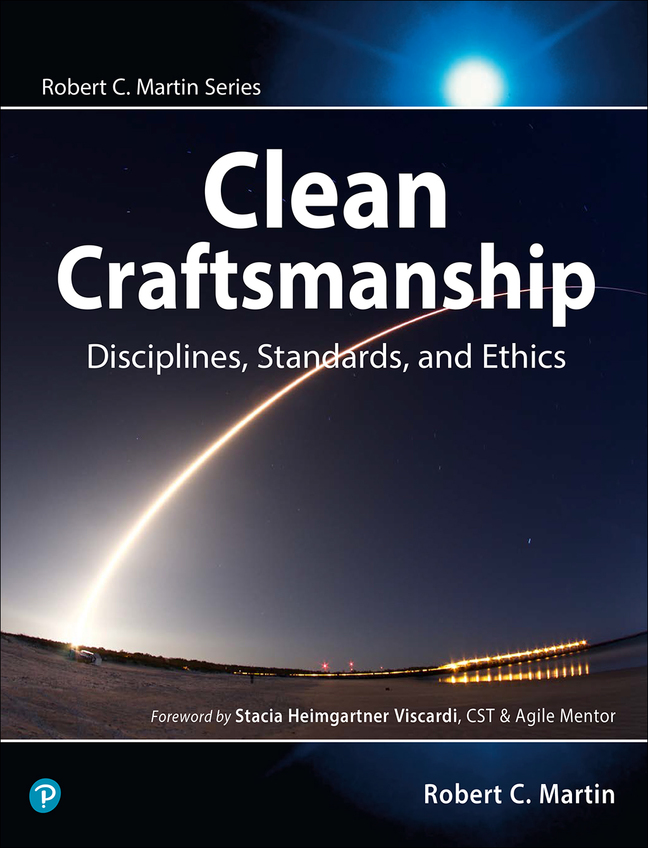 Clean Craftsmanship: Disciplines, Standards, and Ethics
Clean Craftsmanship: Disciplines, Standards, and Ethics
by Robert C. Martin
Addison-Wesley Professional (2021) ISBN 9780136915713 (On reserve at Auraria Library) [Publisher] [Biblio]
 Good Code, Bad Code: Think like a software engineer
Good Code, Bad Code: Think like a software engineer
by Tom Long
Manning (2021); ISBN 978-1617298936 [Publisher] [Biblio]
Grading
Assessments are scored using point-based grading with corresponding letter-grade interpretations. The following table shows the conversion between points earned and letter grades. The "% Range" column reflects the earned points as a percentage of the total points available before accounting for any extra-credit opportunities.
| Letter Grade |
% Range |
|---|---|
| A | 90% ≤ A |
| B | 80% ≤ B < 90% |
| C | 70% ≤ C < 80% |
| D | 60% ≤ D < 70% |
| F | F < 60% |
Successful completion of the course requires demonstration of competence (70% or above) in each of the content areas:
- Software Development Models & Methods
- Collaboration & Communication
- Software Project Management
- Software Engineering Practices
- Intellectual Property
The final course score and letter grade are determined by combining all assessments and using the table above.
Assignment Types
- In-class participation & contribution
- Responses to readings (interpretations, highlights, annotations, discussions)
- Presentations (prepared visuals & delivery sessions)
- Reflections (retrospective insights)
- Project contributions (tangible artifacts)
Missing and Late Submission Policies
- Canvas will automatically assign a score of 0 (zero) to missing submissions.
- Canvas will automatically apply a late submission deduction of 10% per day.
Participation
Your active participation in class activities and discussions is essential to both your and your classmates' learning and success. This course thrives on collaboration, and your preparation, engagement, and contributions create the foundation for everyone's learning experience. We'll work together in class sessions and continue collaborating on projects outside of class.
Class sessions and course resources contain valuable information that builds throughout the semester. To succeed in this course, you'll need to engage with the concepts and content from class sessions and resources, developing your ability to apply them in real-world scenarios. Taking notes and reviewing them regularly will strengthen your understanding and help you contribute more effectively to team discussions.
Professional software development is inherently collaborative—teamwork is the norm, not the exception. Just like in industry, individual skills matter, but teams succeed through collective effort and shared expertise. This course integrates collaborative skills into both learning and assessment. Your grade reflects both your personal contributions and your team’s collective performance.
Class Session Attendance
Attendance is required, and active participation during class is essential. Please plan to attend all sessions and engage fully in collaborative learning activities.
Missing class affects:
- your classmates, who miss your unique perspective and contributions to discussions and activities.
- your team, which loses a valuable member during collaborative work sessions.
- your learning opportunities, as you miss real-time guidance and mentoring
- assessment of your collaborative contributions, which becomes difficult to evalute.
- the collaborative-learning environment, reducing the interactive nature of the course for everyone.
- compliance with federal credit hour requirements*, which mandate specific time commitments.
If you're facing challenges that affect your attendance, please reach out early so we can work together to find solutions.
Commitment to Learning
Significant learning occurs when you actively engage with the material outside of class. Class time provides structure and specific opportunities for collaboration, but it not sufficient dedicated practice and reflection. Consistent with official credit hour requirements*, plan to spend around eight hours each week outside of class engaged in course-related work, practicing with tools, exploring key concepts, and collaborating with your team.
Deliberate practice and thoughtful reflection are essential to meaningful learning. Engaging consistently and challenging yourself helps you understand the concepts more deeply and makes it easier to apply them when you need to. Reflection allows you to step back from your efforts and outcomes to identify insights and build an understanding of what is actually most important. This course incorporates individual and collaborative learning activities along with personal reflections and group retrospectives. These are designed to help you learn not just by completing tasks, but by also paying attention to your reflections that follow.
Commitment to Collaboration
Team projects require collaboration beyond scheduled class times, similar to how professional teams work together on their own schedules to meet deadlines. While we'll provide some class time for teamwork, successful teams coordinate and blend their individual schedules, enabling them to collaborate effectively and meet project goals. In professional settings, a team's success is often judged by its collective accomplishments, and your ability to work effectively with others mirrors what employers value most. The time you invest in team collaboration directly impacts both your learning and your team's achievements.
Collaboration, Teamwork, and Citation of Sources
Collaboration, teamwork, and consultation of work by others are the norms in the computing community.
Collaboration
Collaborative activity is required for successful completion of this course. In particular, collaboration is regarded as an essential aspect of learning computer science and being a computing professional. Discussion and collaboration with fellow students, instructors, and university resources (such as the Writing Center) are strongly encouraged. You are expected to engage with course content and work on assignments and projects in collaboration with other course participants.
That said, in order to ensure fair and meaningful assessment, you must make your own submissions and report your individual effort, even when your work has benefitted from collaboration.
You will be asked to compose and submit personal reflections, for both collaborative and individual efforts, to demonstrate your learning process.
Teamwork and Shared Responsibility
Team deliverables are expected to be a joint effort involving all team members. An overall evalu
ation will be made for each deliverable that reflects the quality of the product. Each team member will also receive an individual grade. This individual grade may reflect a combination of instructor assessment and peer evaluations. You will be asked to assess the contributions of team members, including your own.
Citations and Acknowledging Contributions
You must credit all people you worked or consulted with, and explicitly reference any sources (people or works) you consulted, clearly indicating where and how they apply.
If you include direct quotations or derivatives (text, graphics, program code, etc.), you must provide explicit citations that identify the sources.
Generative AI Policy
Using generative AI (genAI) is encouraged in this course. Whenever used, you must accurately explain how genAI was used and provide proper attribution (such as the tool name, relevant prompts, session transcript, or other session information). In particular situations, use of genAI or other resources may be restricted or prohibited, and accompanying instructions will explicitly address any such restrictions.
Academic Dishonesty
Turning in work that includes quotations or derivatives in any form (text, graphics, program code, etc.) without corresponding citations, or without properly citing references, or without crediting collaborators will be treated as an act of academic dishonesty. It is your responsibility to ensure that you have properly vetted and cited all sources.
Note: Online aggregators, search engines, and text generators may not properly attribute content. Responsibility for appropriate attribution resides with you, not those service providers.
Incidents of suspected dishonesty will be reported to the Chair of the department and the Dean of the college. Consequences may include: a score of 0 on the assignment; a grade of "F" for the course; academic probation; or dismissal from the institution. This is a very serious matter and should not be taken lightly. If you have any uncertainty or concerns, please discuss them with your instructor or your advisor.